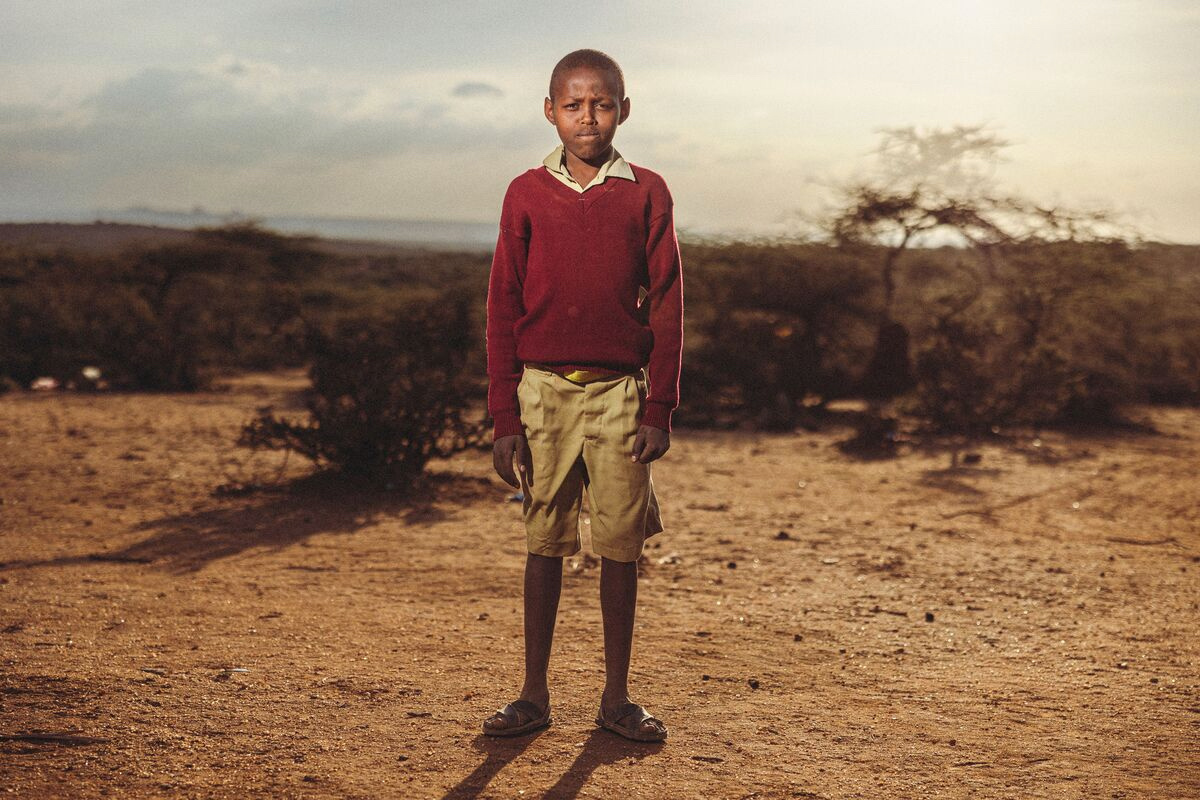
CLARE STEELE, CEO of Compassion Australia, says we must act now to tackle the “devastating” impacts of the global food crisis…
Newcastle, Australia
Where there is conflict, there is hunger. The Russia-Ukraine war, along with inflation, extreme weather and the pandemic, is creating a devastating global food crisis. This crisis is affecting us all, but for those that were already struggling to put food on the table, the situation is dire. This global food crisis is unlike any in the past.
Right now, increasing numbers of already hungry children have nothing to eat. Before the pandemic, 135 million people were severely food insecure. Today, it has doubled to 276 million. According to the United Nations, this is an increase of 500 per cent since 2016.

A boy in Kenya: children in Bangladesh, Sri Lanka, Haiti, Kenya, Togo, Ethiopia, Burkina Faso and Uganda are among the worst affected by the food crisis. PICTURE: Courtesy of Compassion Australia.
Severe hunger leads to malnutrition: a critical, potentially fatal, health issue, and one that also has a flow-on effect that prevents children performing at their best academically and creates additional financial burdens on families. The two most common forms of childhood malnutrition in the developing world include wasting, where a child is too thin for their height, and stunting, where a child has failed to reach their growth potential. The impacts of childhood malnutrition are catastrophic. These include death, reduced intellectual capabilities, poor academic performance, increased prevalence of attention deficit disorders, increased risk of diabetes and even cancer later in life.
“The World Bank estimates warn that for each one percentage point increase in food prices, 10 million people are thrown into extreme poverty worldwide. We must act now to avoid the devastating consequences. If we don’t, the United Nations have forecast the situation will only get worse.”
We are already seeing how this crisis, compounded with other serious challenges, are affecting our friends in Sri Lanka. Food, economic and political crises are creating a devastating situation for families. Many are no longer able to afford basic goods. Food, medicine and fuel are difficult to acquire, and power cuts are severe. Many families’ income can no longer support their needs due to sharp inflation.
But this problem truly is global. The World Bank estimates warn that for each one percentage point increase in food prices, 10 million people are thrown into extreme poverty worldwide. We must act now to avoid the devastating consequences. If we don’t, the United Nations have forecast the situation will only get worse.
Over the past two years of the pandemic, Compassion’s local church partners around the world have provided over 21 million food packs to hungry families, but now the crisis is skyrocketing the number who need help. It’s impossible to know how long the global food crisis will last, but experts predict it could last years if action isn’t taken now.
Compassion is leading a local-first response to the global food crisis through more than 8,000 local church partners all over the globe. The local church is positioned to quickly and effectively respond to the global food crisis because it is a trusted presence in vulnerable communities. This means aid is delivered by neighbours to neighbours.
When a child experiences chronic hunger and malnutrition, every aspect of their development is stunted. This means holistic child development can only occur if a child’s basic physical needs are met – and this includes access to food.
We rely on our readers to fund Sight's work - become a financial supporter today!
For more information, head to our Subscriber's page.
We are responding in the short-term to meet urgent needs and will remain in the long-term to equip local churches to stabilise and sustain their communities. Compassion equips families with the tools and resources to become more self-sufficient in providing for food needs. Interventions protect children from exploitation and abuse like child marriage and child labour, and direct money transfers are a secure, discrete, cost-effective and dignified way to get aid to those who urgently need it.
Compassion’s response is two-fold: meeting children and families’ urgent nutrition needs now while working towards a sustainable solution to help stop hunger. Our local partners will provide immediate food packages and unconditional cash transfers to households deemed vulnerable to food insecurity. We are also working towards long-term food security through distributing seeds, fertiliser, livestock and training on how to build and maintain home gardens and small-scale farms.
This is indeed a time of crisis, but we can – and must – answer hunger with hope. By supporting the work of Compassion and other not-for-profits at this time, you can help vulnerable children and their families not only make it through these challenging times, but flourish on the other side of them.

Clare Steele is the CEO of international Christian child development charity Compassion Australia.
You can act today and answer hunger with hope by supporting the people of Sri Lanka through Compassion or by giving to other charities working to stop the global food crisis.






